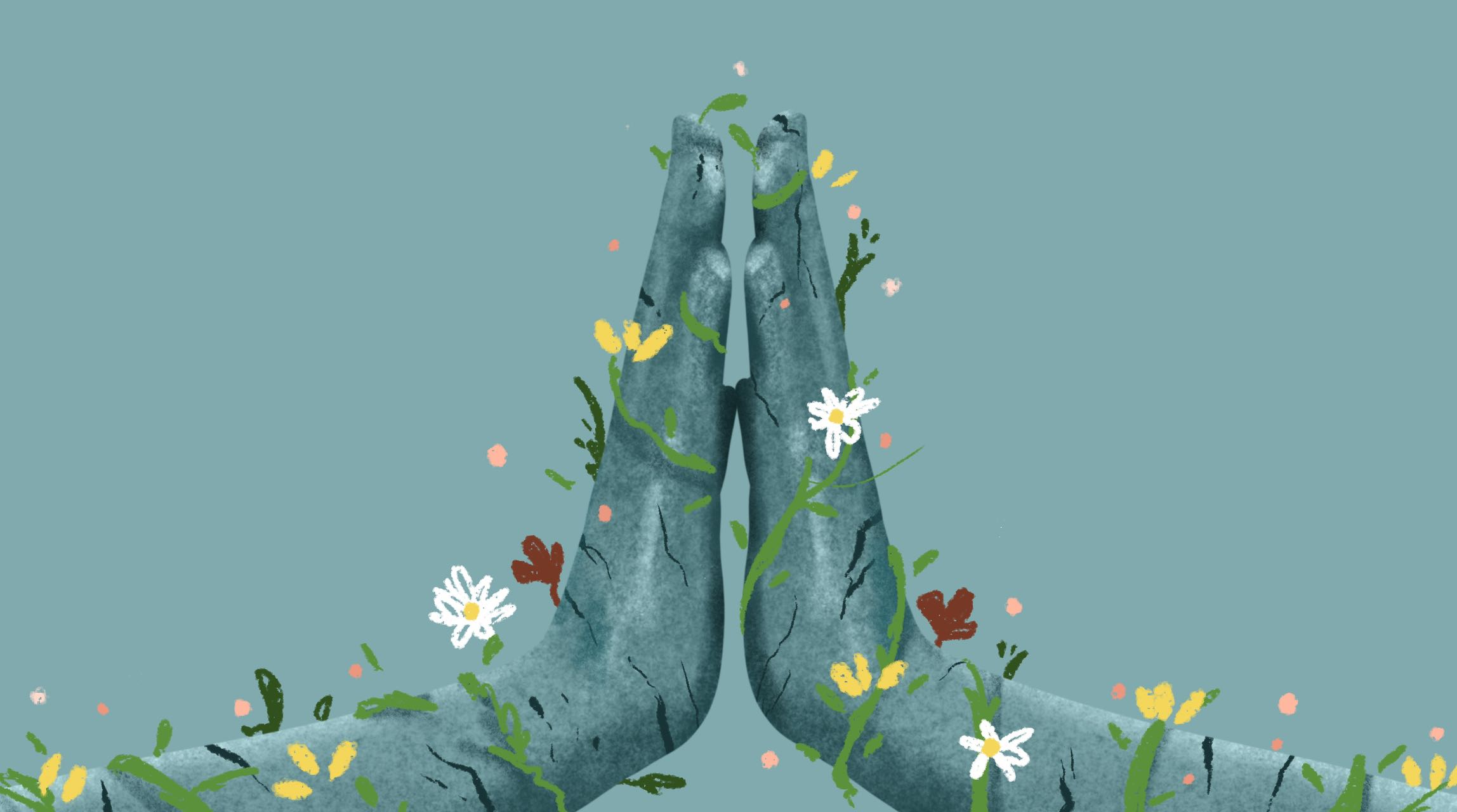TLDR: This article is a continuation of my previous article about falling into depression. Here I describe the phase of recovering from depression and along the way learning Dhamma backwards, from experience to theory.
Note to readers: this article only reflects my personal journey through mental illness. Please seek professional medical advice if you are feeling unwell. You may read part I here.
The training
Thinking about my loved ones, I decided to try and solve this depressive state I am in. If I am already ready to end everything, what else can I lose right?
The first thing I turned to.. was YouTube.
I was searching for ways to overcome sadness or how to overcome a broken relationship.
The search on YouTube returned two sources of information: meditation guidance by Mingyur Rinpoche and Q&A sessions by an Indian Mystic to Indian university students.
The training begins.
The noble truth of suffering

- Sickness is suffering
- Not getting what you want is suffering
- Being separated from what you want is suffering.
These three phrases summed up what I was going through during my depression. I did not want to have a negative mind so I constantly fought the sick mind which was full of negative thoughts and feelings.
Constantly replaying memories of my past broken relationship, I relished in the past. After the memories stopped playing, I came back to reality, realizing that I would never get back to the relationship. Not getting what I wanted, I suffered.
Origin of suffering is craving
- I can never get back the familiar relationship that I want. But I want a sense of familiarity.
- I can never be with the person that I was familiar with. But I want the comfort of being with the person.
- I am drowning in negative thoughts and feelings. I don’t want pain!
These thoughts of wanting and not getting it replayed in my head. So much dukkha.
To try and overcome the depression, I followed Mingyur Rinpoche’s meditation technique to visualize my thoughts and feelings like clouds in my mind. Whenever you see thoughts and feelings arise, treat them like clouds and see them fade away.
Easier said than done.
For the first year of meditation to overcome depression, I never meditated for more than 15 minutes. Sitting down in meditation and watching my mind, negative feelings and thoughts swamped me within seconds and minutes. I got tired from the activities of the mind so I fell asleep tired.
A side note, it was after reading MN10 Satipaṭṭhānasutta that I realized that I should have started meditation from the body first instead of feelings. But I wouldn’t have known it back then.
All mental phenomena have mind as their forerunner;
they have mind as their chief; they are mind-made.
If one speaks or acts with an evil mind,
‘dukkha‘ follows him just as the wheel follows the hoofprint of the ox that draws the cart.
– Dhammapada 1
The mind will drift in the direction you guide it towards. In the initial stages where I still had not accepted the broken relationship, I saw the negative thoughts and feelings, and I followed them and relished in them, to replay the memories of the past.
Cessation of craving leads to the cessation of suffering
What helped me to get over the negative thoughts and feelings of a break-up? Acknowledging that the relationship was over and it was time to move on helped. I set the intention to see my negative thoughts and feelings and acknowledge them, instead of fighting them (not wanting the thoughts and feelings) or chasing them (wanting and relishing in the thoughts)
- “You are not your body, you are not your mind”
- “Once you put some distance between yourself and your body and mind, that’s the end of suffering”
- “If you are in the river, you cannot see the river. If you are outside the river, you can see the river.”
These phases gave me progress in meditation through depression.
I stopped the strong craving for the negative thoughts and feelings to go away. I stopped fighting the thoughts and feelings. I put some distance between me, the observer, and the thoughts and feelings (the grasping aggregates).
I was like a person in a cinema watching the memories and feelings play out in the mental cinema of my mind.
The meditation got easier and slowly, I became the observer of the raging thoughts and emotions. I saw the thoughts and emotions arise and I saw them slowly fading away.
Honey-Cake sutta

To give a little more flavour of my journey through mental illness, I’ll use the Honey-Cake sutta.
Sense organs (e.g. eyes) + sense consciousness (a functioning eye) + Phenomenon (Sights from the surrounding). The meeting of the three, is contact.
Contact is a condition for feelings.
What you feel, you perceive. What you perceive, you think about. What you think about, you proliferate. – MN 18 The Honey-Cake
What do all these mean?
After my breakup, whenever I saw couples, the sight of them triggered all the memories in my mind. My mind started to feel all the past feelings and memories came flooding out. Holding onto the feelings and memories, I craved for the past. All these actions happened in just a split second.
When I became more mindful, I saw that I was seeing, I was aware that I was seeing. So when I saw couples, I was mindful that thoughts and feelings arose. Then I watched the thoughts and feelings play out in my mind. Not getting carried away by the mental drama of thoughts and feelings, I saw the mental drama slowly fade away.
Beyond the flood
After meditating for four years, I can see my own aggregates objectively. Whenever the aggregates get triggered by contact with the inner world (thinking about the past) or the outside world (when I see couples), I can see the aggregates at some distance and not get carried away.
The thoughts and feelings of the breakup are still there. But the aversion to the thought and feelings became much much weaker. Negative thoughts and feelings became just thoughts and feelings. There is no need to label the aggregates as good or bad. Aggregates are just phenomena that arise and if you watch them with some distance, not getting carried away, they fade away.
nibbida — disenchantment;
viraga — dispassion;
nirodha — cessation;
vimutti — Liberation
Reference: Upanisasutta – SN12.23
Once you stop getting enchanted/attracted (nibbida) by your aggregates (negative thoughts and feelings in this case), you develop viraga (dispassion). Eventually, you get tired of engaging with the negative thoughts and feelings, then it becomes nirodha (cessation). Finally, vimutti, freedom from the grasp of the negative mind states.
What about learning Dhamma backwards?
Throughout the article, I have thrown in Dhamma concepts and Pali words. But throughout the four years when I was meditating to overcome depression, I never learned any Dhamma concepts.
I never knew about the noble truths, five grasping aggregates, six sense bases etc.
It was only after four years of meditation that my mental conditioning became stable. I went to search for answers about the journey I had been through.
This meant, to me, that Dhamma is the reality around us. Dhamma is not just theory in a book to me because I experienced the Dhamma. With the practice of meditation, there is a gradual development of dispassion towards those raging emotions and grasping aggregates.
I learnt through experiencing the Dhamma before searching for theoretical knowledge in the suttas.
Resources I found
My search to relate my experience to Dhamma concepts took me to Buddhist Fellowship and DAYWA. Through Buddhist Fellowship, I attended the Dhamma Foundation Course (DFC) conducted by Sister Sylvia Bay and Brother Ong Chye Chye.
The detailed and lively lessons of Sis Sylvia and Bro Chye gave me the Dhamma roadmap to link what I experienced to the Dhamma taught by the Buddha. Lessons included discussions and meditation sessions for participants to understand and experience the Dhamma concepts and bring the concepts to life.
DAYWA, aka Dhamma Assembly for Young Working Adults, is a group of young Buddhist practitioners. It is through DAYWA that I found like-minded friends who are committed to the practice and discuss our journey together. Through the events and discussions, I learned more about the Dhamma and grew in my Dhamma journey.
Disclaimer: To highlight any conflict of interest, I volunteer at both Buddhist Fellowship and DAYWA at the time of writing this article. But to see if I am biased or not, it is for the wise to visit these organizations and see it for themselves 🙂
Concluding points
My intention in sharing my journey is to give my version of going through a mental illness. Everyone’s situation of suffering (dukkha) might be a little different, ranging from minor dissatisfaction to severe depression.
Being aware of the suffering is the first step and having the intention to take steps to overcome the suffering to bring you more peace is a wholesome act that deserves praise.
The journey to reduce our suffering is a long one. But the Dhamma is a gradual training path and every effort we make can bring us to more peace and joy. Meeting the Dhamma and gaining even one minute of peace from the flood of your mind is like finding an oasis in the vast desert.
Sabbe Satta Sukhita Hontu. May all beings be happy.
Mental health resources for those in need:
- SOS 24-hour Hotline: 1-767
- Shan You Counselling: 6741 9293
- Buddhist Free Clinic: 6841 3370
- Singapore Association for Mental Health: 1800-283-7019
- Institute of Mental Health: 6389-2222 (24 hours)
- Thye Hua Kwan Moral Charities: 6337 1201
Wise steps
- Acknowledge your grasping aggregates (body, feelings, thoughts, perceptions and consciousness).
- Learn to see your aggregates in a neutral manner. Not satisfying your aggregates and not fighting your aggregates
- In the Dhamma journey, learn moderation to reduce craving.


